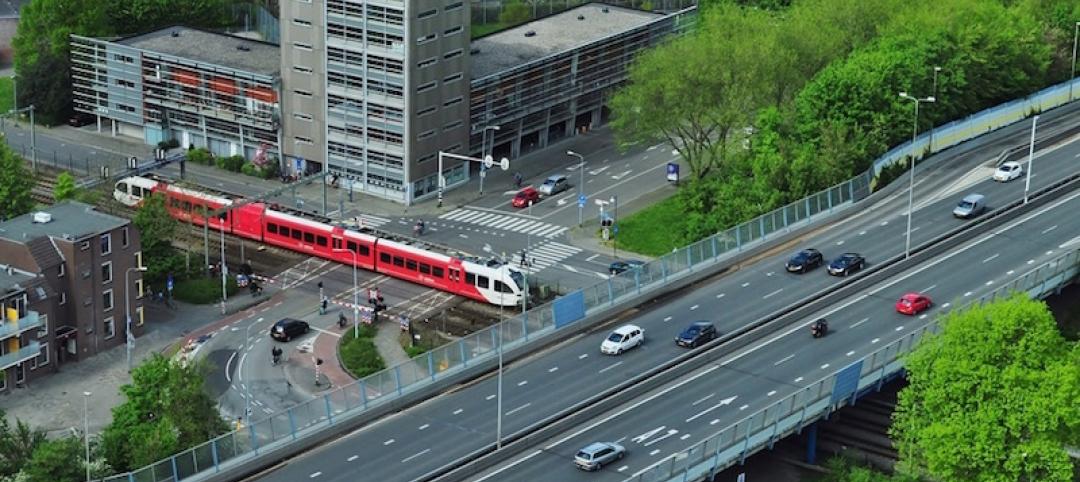The Washington, D.C., practice of global design firm Perkins&Will has pledged to eliminate embodied carbon in every commercial interiors space it designs by 2030.
“We’re setting this ambitious benchmark as a necessary response to the global climate crisis,” says Perkins&Will architect and sustainability expert Jon Penndorf. “We believe the District of Columbia and surrounding communities can lead the way for the rest of the country.”
Embodied carbon is an aggregate of all emissions released during ingredient extraction, product manufacturing, transportation, and end-of-life reuse or non-use. Statistics suggest embodied carbon is responsible for 11% of all global greenhouse gas emissions annually, the firm says. In the building sector, it accounts for more than a quarter of emissions.
“It’s been ingrained in architects and designers to think of heating and cooling as the biggest culprit, some of the worst climate change offenders—our building materials—are hidden in plain sight,” says Perkins&Will architect Rod Letonja. The problem is compounded by interior renovations and new tenant fit-outs. Old interior building materials frequently get discarded rather than reused, and with large leases turning over every 10 years on average, the emissions impact increases over time.
Related Stories
Codes and Standards | Oct 24, 2016
Fall hazards, hazard communication lead 2016 OSHA top violations
The 2016 list bears a strong resemblance to the 2015 list.
Codes and Standards | Oct 21, 2016
Green Bond Guidelines for the Real Estate Sector updated
The market growth is a signal of future opportunities.
Codes and Standards | Oct 20, 2016
What top-ranked energy efficiency states are doing right on codes, utility mandates
Calif., and Mass., use aggressive targets to lead nation.
Codes and Standards | Oct 20, 2016
New cross-laminated timber fire tests back proponents of high-rise wood structures
'Demonstrating for the first time the feasibility of tall mass timber buildings in the U.S.’
Codes and Standards | Oct 14, 2016
ASCE issues first tsunami-safe building standards
The new standards will become part of international building code.
Codes and Standards | Oct 12, 2016
Making concrete greener
The high energy-consuming material can be made more sustainably.
Codes and Standards | Oct 11, 2016
Historic preservation moving beyond saving grand old buildings
National Trust for Historic Preservation CEO says the focus is on saving cities, not just buildings
Codes and Standards | Oct 10, 2016
Los Angeles voters will decide whether high-density developments should be harder to build
A March vote on the Neighborhood Integrity Initiative would put 2-year ban on zoning changes
Codes and Standards | Oct 10, 2016
New sustainable landscape development and management credential launched
GBCI offered the first testing opportunity Oct. 3 at Greenbuild
Codes and Standards | Oct 6, 2016
Obama administration will spend $80 million for smart cities initiatives
The technology is targeted for climate, transportation, resiliency.
















